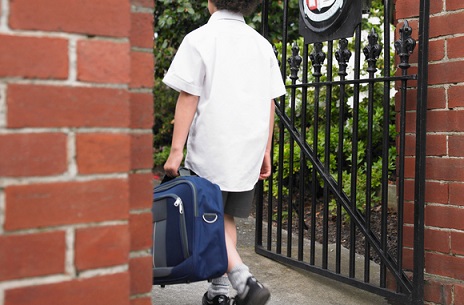
For students, school is the end of an era defined by structure, constant learning and guidance. However, for students who aren’t sure of their career trajectory, the end of school can mark the start of a more ambiguous era, defined by confusion, anxiety and limbo.
One group of particular concern in this transition from school are young men, 1 in 5 of whom report having a mental or behavioural condition. Yet, males are significantly less likely to seek support, making up just 21% of contacts to Kids Helpline in 2018.
yourtown CEO, Tracy Adams, said this shows that supporting students leaving school is crucial for their mental health and well-being.
“Transitioning from high school can be a time of heightened risk for mental wellness. It can be layered with difficulties that can originate in the transition period as students leave one life behind and begin another,” Adams said.
“We also know that early interventions and the right support can change the trajectory of a young person’s life.”
Adams called for a change of culture around male help-seeking with regards to mental ill-health.
“Young men in need of support may feel they are not able to reach out proactively, often discouraged from reaching out for fear of seeming ‘weak’,” she said.
“There is a perception among young men that they are invincible. Mental health just isn’t on their radar. They tend to believe that you just ‘harden up’ when times get tough or you feel overwhelmed.”
‘No one is bulletproof’
Adams said society needs to let young men know that “no one is bulletproof”, adding Schoolies is the ideal time to watch out for their mates and for themselves.
“Partying can seem like a time of celebration and is often an outlet after stressful exams,” she said.
However, Adams said it is also important to remember that young people who have just finished high school and are in transition to further education, training or employment may also grieving and coping with a huge amount of change, which may result in higher levels of vulnerability, stress and emotional distress.
“This can make them more at risk of mental health and well-being issues,” she said.
“While the majority of young people at Schoolies party safely and respectfully, the risky and damaging behaviours we see some engage in at Schoolies are deeply concerning.”
Studies show that half of all mental health conditions appear before age 15 and a further 25% emerge in late teens and early adulthood.
Adams said these risky behaviours could be a sign of a young person experiencing mental or emotional distress and that the focus on safety and wellbeing “beyond the end of the party” should be strengthened.
“Our tertiary qualified, professional counsellors are experts in supporting young people at any time and for any reason. Kids Helpline provides support to young people aged 5–25,” Adams said.
“It is the only free, 24/7 counselling service to provide support to young people throughout childhood, adolescents and into early adulthood.”


